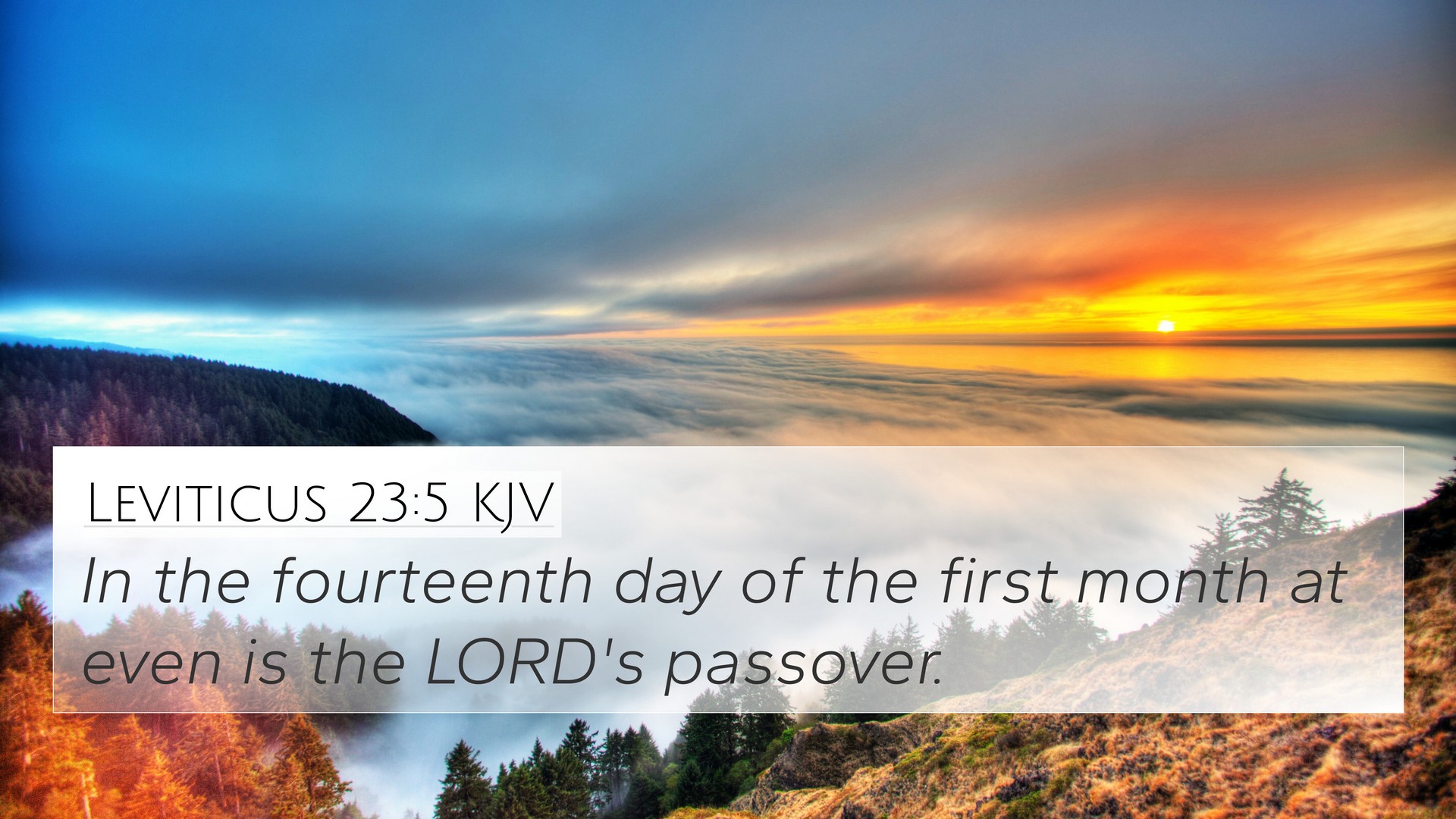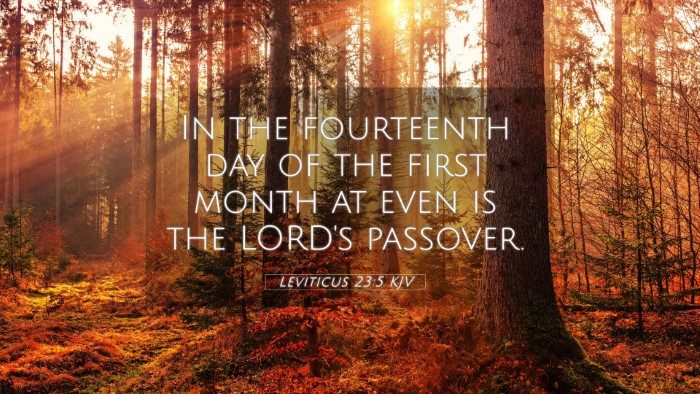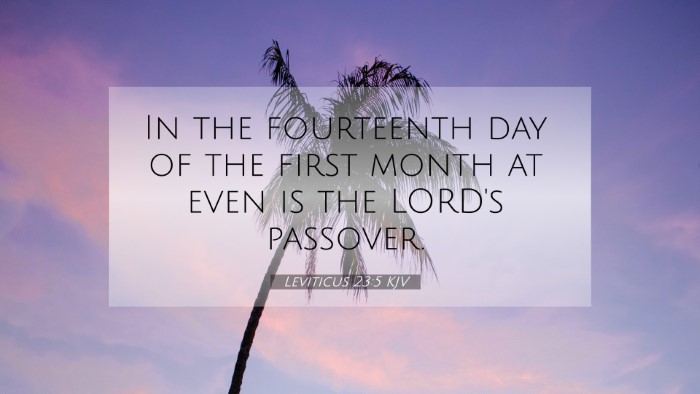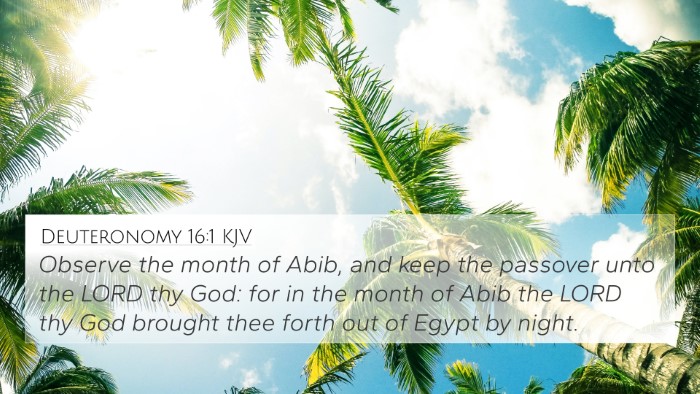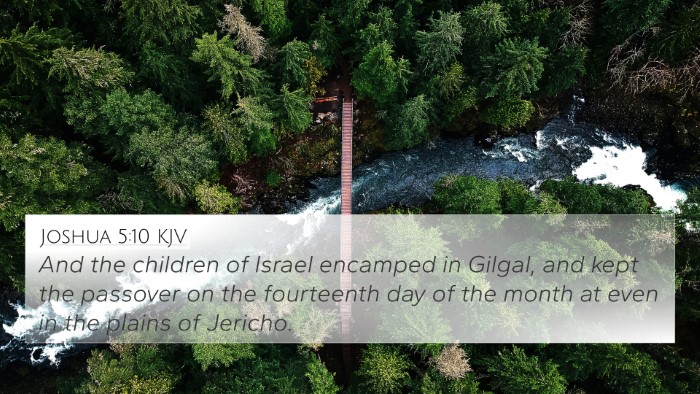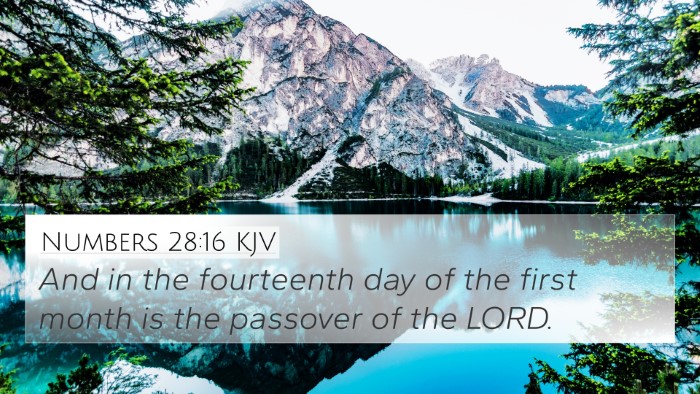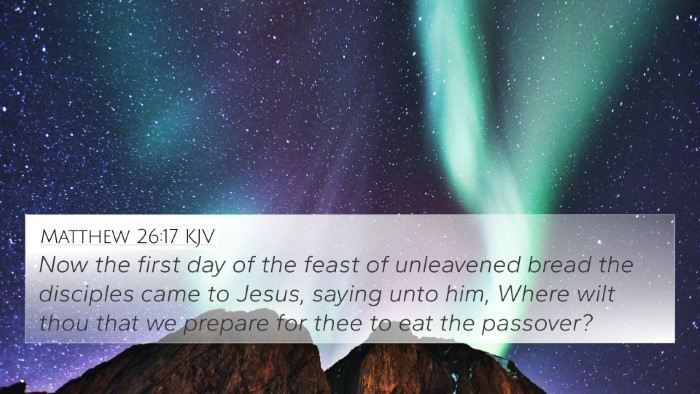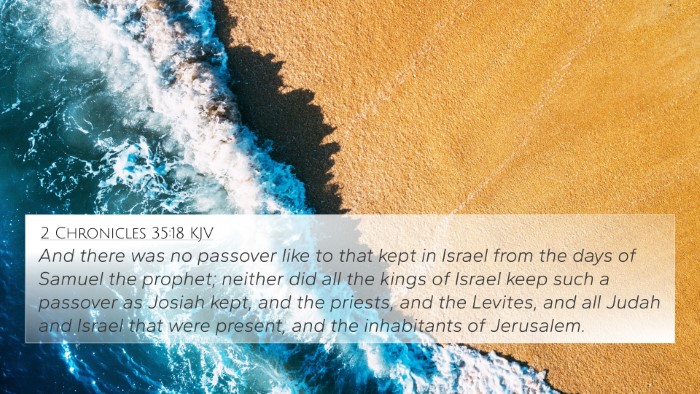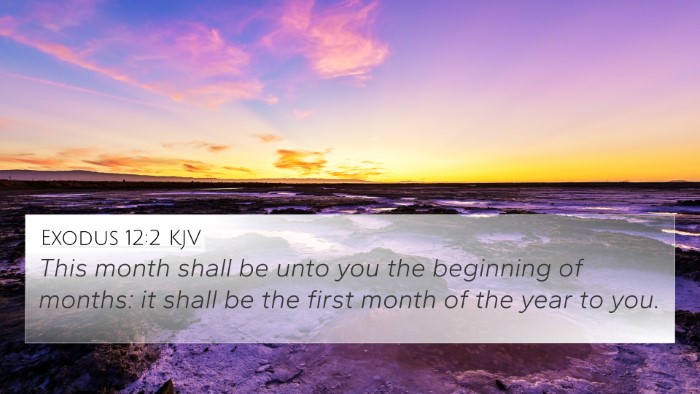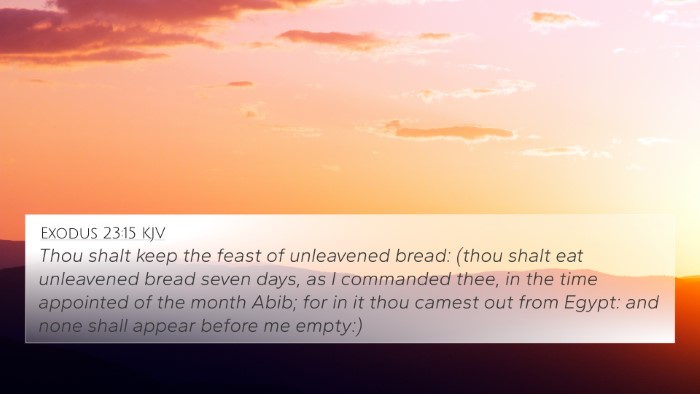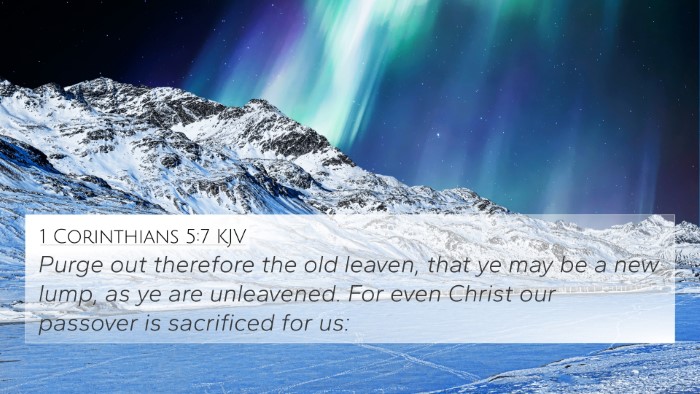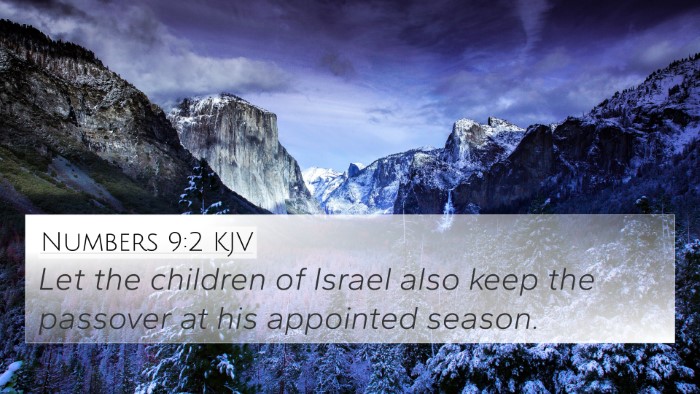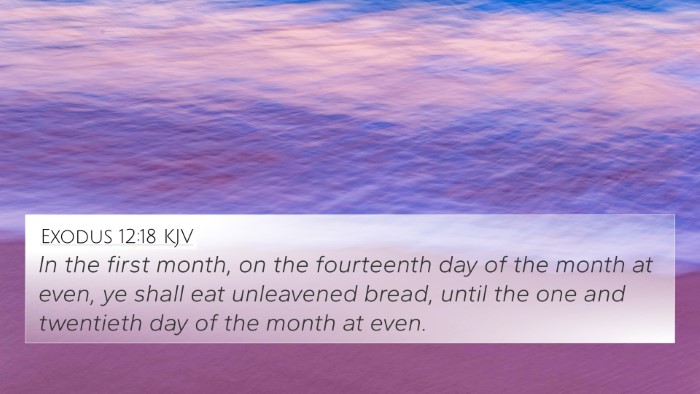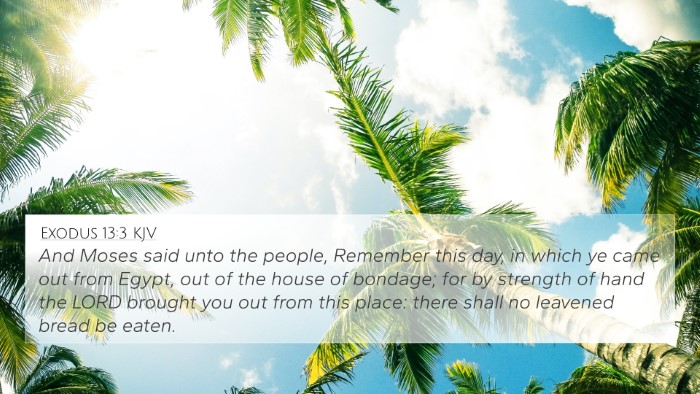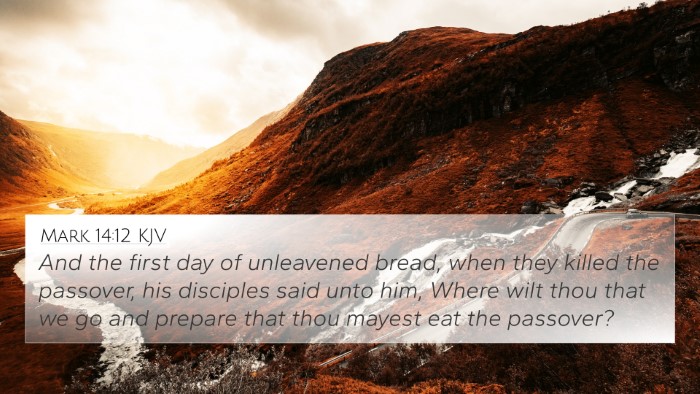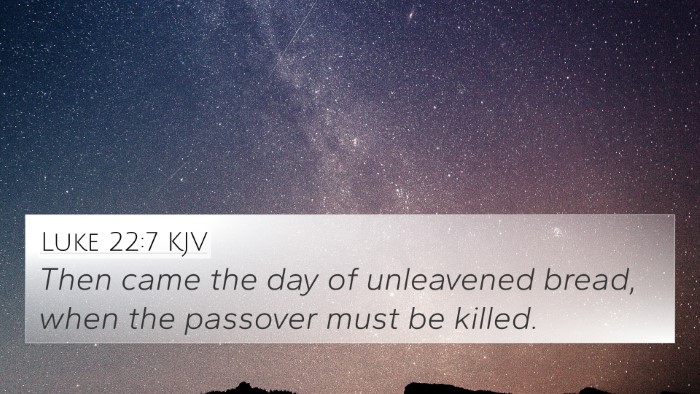Meaning and Interpretation of Leviticus 23:5
Leviticus 23:5 states: "In the fourteenth day of the first month at even is the Lord's passover." This verse holds profound significance in the context of Israel's history and their covenant relationship with God. It marks the specific time and observance of the Passover, which is pivotal both in Jewish tradition and Christian theology.
Overview of the Passover
The Passover commemorates God's deliverance of the Israelites from slavery in Egypt. It was instituted just before the Exodus, as noted in Exodus 12:1-13, where God instructed the Israelites to sacrifice a lamb and mark their doorposts with its blood. This sign would protect them from the death that struck the Egyptians.
Key Themes in Leviticus 23:5
- Divine Commandment: The observance of the Passover is presented as a directive from God, highlighting the importance of obedience to His law.
- Remembrance of Salvation: The Passover serves as a moment to reflect on God's saving acts, emphasizing gratitude and faith.
- Symbolism of the Lamb: The lamb sacrificed during Passover symbolizes Christ, often referred to as the "Lamb of God" in the New Testament, linking both Testaments together.
Insights from Public Domain Commentaries
Matthew Henry: Henry emphasizes the importance of this feast as a perpetual memorial to God's grace and protection during the Israelites' flight from Egypt. He notes how this act of obedience was foundational to their identity as God's chosen people.
Albert Barnes: Barnes explains that the specifying of the date reinforces the significance of the festival, urging the Israelites to embed this ritual deeply in their cultural and spiritual identity. He connects the Passover to the broader theme of redemption throughout the Scriptures.
Adam Clarke: Clarke underscores the prophetic nature of the Passover, revealing how it foreshadowed the sacrifice of Jesus Christ. He notes that understanding this connection enhances our appreciation of the New Testament's teachings about Jesus’ death and resurrection.
Cross-References and Related Bible Verses
Leviticus 23:5 has several Bible verse cross-references that enhance its understanding:
- Exodus 12:14: "And this day shall be unto you for a memorial; and ye shall keep it a feast to the Lord throughout your generations."
- 1 Corinthians 5:7: "For even Christ our passover is sacrificed for us."
- Hebrews 11:28: "Through faith he kept the passover, and the sprinkling of blood, lest he that destroyed the firstborn should touch them."
- Luke 22:15: "And he said unto them, With desire I have desired to eat this passover with you before I suffer."
- Matthew 26:17: "Now the first day of the feast of unleavened bread the disciples came to Jesus, saying unto him, Where wilt thou that we prepare for thee to eat the passover?"
- John 1:29: "The next day John seeth Jesus coming unto him, and saith, Behold the Lamb of God, which taketh away the sin of the world."
- Romans 3:25: "Whom God hath set forth to be a propitiation through faith in his blood."
Inter-Biblical Dialogue and Thematic Connections
This verse is a prime example of thematic connections in the Bible, illustrating how God’s plan unfolds from the Old Testament to the New Testament. The Passover not only commemorates a historical event; it also serves as a foreshadowing of Christ’s ultimate sacrifice. The connections between Bible verses regarding the Passover reveal a continuity in God’s redemptive work that transcends time.
Understanding the linking Bible scriptures associated with Leviticus 23:5 enhances one's appreciation of God's faithfulness and the fulfillments of His promises across scripture. Cross-referencing biblical texts can provide deeper insight for both personal study and group discussions.
Tools for Bible Cross-Referencing
To navigate the rich tapestry of connections in the Bible, various tools can assist in effective cross-referencing:
- Bible Concordance: A comprehensive index that lists words found in the Bible and their occurrences, allowing for quick reference to related verses.
- Bible Cross-Reference Guide: Resources that offer thematic groupings of similar scriptures, aiding in comparative Bible verse analysis.
- Cross-Reference Bible Study: Methods that encourage deeper exploration of linked verses, enhancing understanding of biblical themes.
- Bible Chain References: Systems where verses are linked together based on a central theme or word, providing a streamlined pathway for study.
Conclusion
Leviticus 23:5 is not merely an instruction but a gateway into the heart of God's plan for His people. It reminds believers of the importance of remembrance, obedience, and the continuous dialogue between Old and New Testament teachings. Exploring the connections between Bible verses strengthens our faith and highlights the comprehensive narrative woven throughout the Scriptures.
As we study the Bible, may we continually seek to understand how various scriptures relate to one another, uncovering the profound truths embedded within God’s Word.
